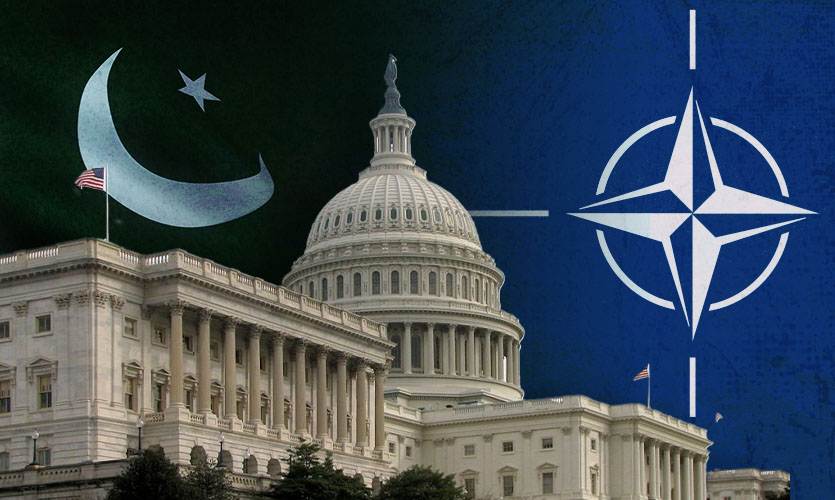US Congressman Andy Biggs has submitted a proposal in the House of Representatives to repeal Pakistan’s classification as a key non-NATO ally.
The lawmaker from Arizona’s fifth Congressional district proposed the bill while also demanding an yearly certification from the president with specified requirements for Islamabad to be granted such a designation.
The position of non-NATO ally confers many benefits, including access to excess US defence supplies, and eligibility for loans of material, supplies, equipment for cooperative research, development, testing, or assessment. To be enacted, the bill is required to be passed by both the House and the Senate, before the president can sign it into law. It has been sent to the House Foreign Affairs Committee for further consideration.
Normally such proposals do not pass, but the current bill shows the lawmakers’ feelings toward Pakistan, which is recognised for harbouring terrorists and utilising them as tools of state policy. The bill requests that the US president issue a certification that the country has made progress in arresting and prosecuting the Haqqani Network’s senior leaders and mid-level operatives, and has taken steps to demonstrate its commitment to preventing it from using Pakistani territory as a safe haven, before further extending Pakistan’s designation as a major non-NATO ally (MNNA).
Pertaining to Pakistan, the bill elaborated that the US President cannot issue a separate designation of Pakistan as a major ally unless the presidential certification states that Pakistan continues to conduct military operations that are contributing to significantly disrupting the safe haven and freedom of movement of the Haqqani Network.
The bill seeks confirmation that Pakistan has taken efforts to demonstrate its commitment to stopping the network. The certification must also state that the Government of Pakistan actively collaborates with the Government of Afghanistan to limit the movement of militants along their shared border.
According to the ANI, the MNNA status was established in 1987, and is a potent emblem of a close connection with the United States. While the designation confers military and economic benefits, it does not imply any security obligations to the designated country.
According to the US State Department, with Afghanistan’s designation withdrawn last year, the US now has 17 major non-allies. Argentina, Australia, Bahrain, Brazil, Colombia, Egypt, Israel, Japan, Jordan, Kuwait, Morocco, New Zealand, Pakistan, the Philippines, Qatar, South Korea, Thailand, and Tunisia are among the countries involved. Pakistan was designated as a MNNA in 2004, by the George W Bush administration.
Read more: “We Have Learnt From Wars, Now Want Peace With India,” Says Pakistan PM In UAE










